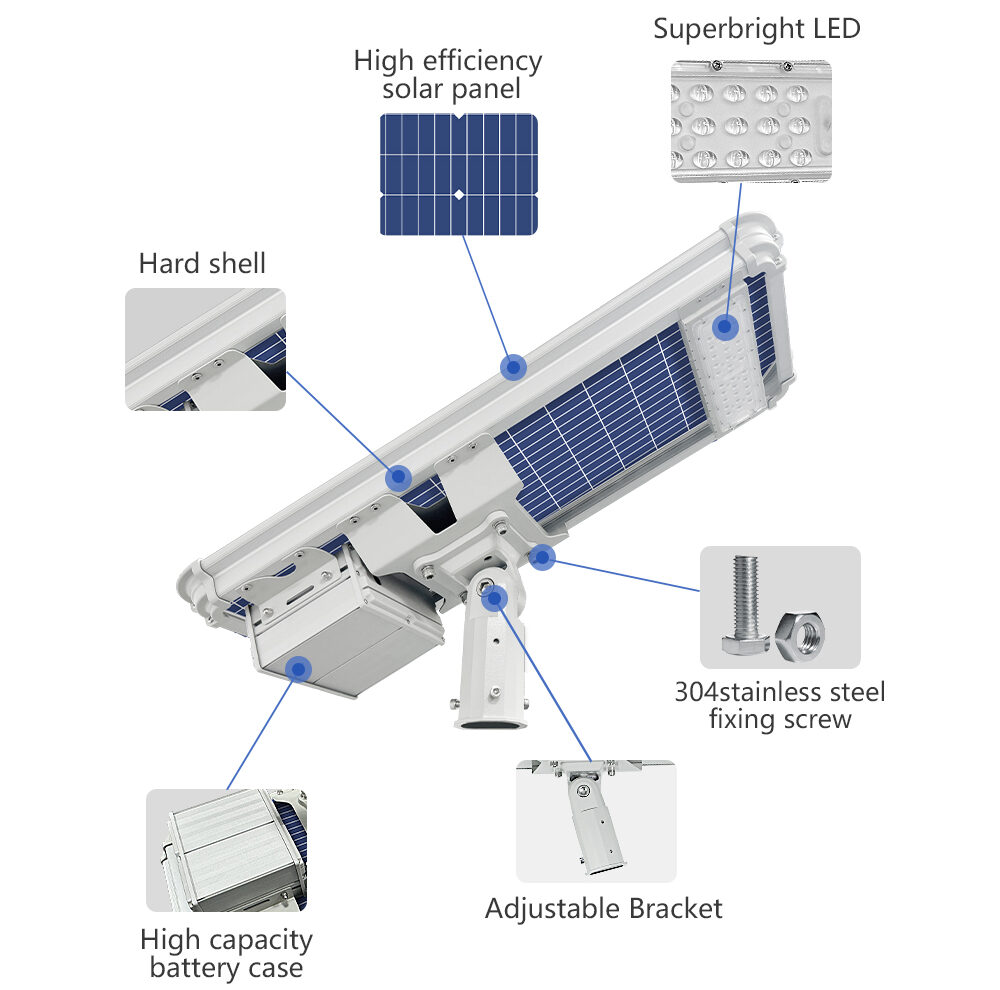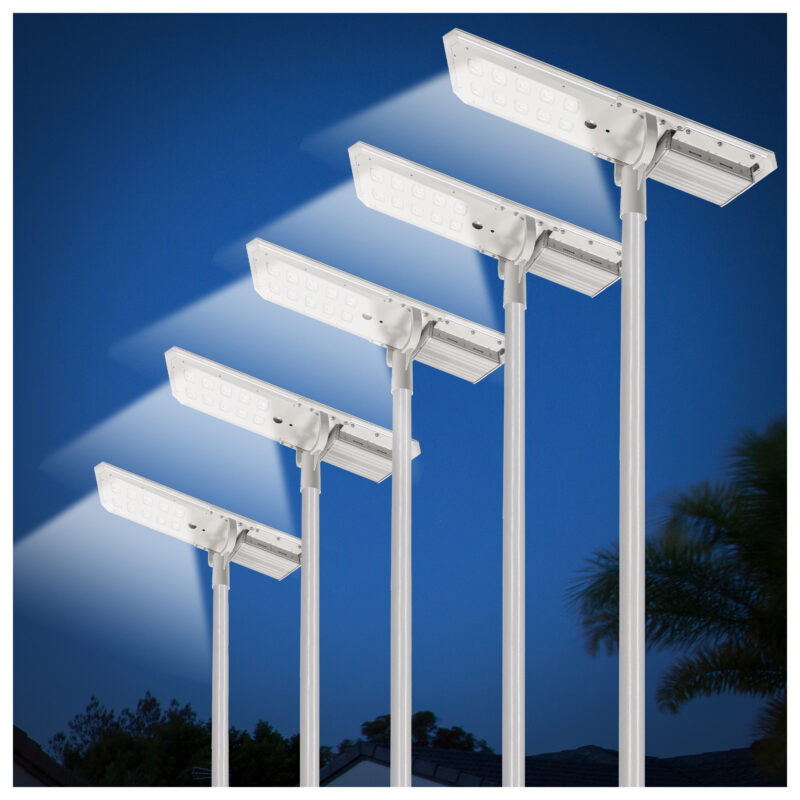As cities modernize, the demand for durable solar lighting systems grows rapidly. From highways to parks, municipalities now seek solar lamps that can withstand harsh environments without frequent maintenance. A critical factor behind this reliability lies in the solar lamp shell material — the very component that protects the lamp’s core.
In this article, we’ll explore how to choose a solar lamp shell material that meets city durability standards, comparing common materials and providing practical tips for long-term lighting performance.
🌇 Why Shell Material Matters in Urban Solar Lighting
Urban environments are unpredictable — from intense UV exposure to heavy rains and pollution. A lamp’s shell material determines how well it resists corrosion, temperature changes, and impact damage.
Key Reasons Shell Material Is Crucial:
-
Weather Resistance: Prevents cracks and fading due to extreme sunlight or rain.
-
Structural Strength: Maintains shape and stability even under mechanical stress.
-
Heat Dissipation: Keeps LED and battery components safe from overheating.
-
Aesthetic Longevity: Ensures lamps remain visually appealing for years.
In short, the shell acts as the lamp’s armor — protecting performance and reducing long-term maintenance costs.

🏗️ Common Solar Lamp Shell Materials Compared
1. Aluminum Alloy: The Preferred Choice for Urban Projects
Aluminum alloy stands out as the most recommended solar lamp shell material for city installations. It offers excellent strength-to-weight ratio, outstanding corrosion resistance, and elegant appearance.
Advantages:
-
Resists rust and oxidation in humid or coastal environments.
-
Lightweight for easier installation and transportation.
-
Excellent heat dissipation for stable LED performance.
-
Recyclable — supports eco-friendly urban policies.
Applications: Street lights, public walkways, and smart solar systems.
💡 At Bright Light, our aluminum alloy solar light housings are treated with anti-corrosion coatings to meet IP66 protection standards — ideal for city-level durability.
2. ABS Plastic: Affordable but Less Durable
ABS plastic shells are lightweight and cost-efficient, suitable for low-budget or residential applications. However, they lack the long-term resilience required for public infrastructure.
Pros:
-
Lower initial cost.
-
Resistant to mild impact and light weathering.
Cons:
-
Can fade or crack under strong UV exposure.
-
Weaker protection against rust and mechanical stress.
Best for: Small residential gardens, temporary installations.
3. Stainless Steel: Premium but Heavier
For landmark installations or premium projects, stainless steel shells are used for their sleek appearance and corrosion resistance. However, their higher cost and weight often limit their widespread use.
Pros:
-
Excellent mechanical durability.
-
Luxury appearance for architectural lighting.
Cons:
-
Expensive and heavy to install.
-
Less efficient in heat dissipation compared to aluminum.
Best for: Commercial plazas, architectural lighting projects.
🌦️ Key Durability Standards for City Lighting
When municipalities procure solar lighting systems, they often reference international durability and safety standards. To ensure compliance, the solar lamp shell material must meet or exceed these benchmarks:
| Standard | Description | Importance |
|---|---|---|
| IP66/IP67 | Water and dust resistance rating | Ensures long-term outdoor reliability |
| ASTM B117 | Salt spray corrosion resistance | Essential for coastal cities |
| IK08–IK10 | Impact resistance rating | Protects against vandalism or debris |
| ISO 9227 | Metal corrosion endurance | Guarantees longevity in humid climates |
Meeting these standards helps reduce maintenance cycles and guarantees the city’s return on investment.

⚙️ How to Choose the Right Solar Lamp Shell Material
When selecting materials for urban solar lighting, consider the following steps:
✅ 1. Assess Environmental Conditions
Determine whether the installation area experiences high humidity, temperature swings, or air pollution. Coastal or desert areas may require more corrosion-resistant materials like aluminum alloy.
✅ 2. Evaluate Load and Installation Method
For large solar street lamps, lighter materials reduce installation labor and costs. Aluminum alloy offers strength without adding excessive weight.
✅ 3. Check Manufacturer Certifications
Always partner with suppliers that offer ISO-certified materials and conduct salt spray and impact testing.
✅ 4. Consider Lifecycle Cost
Although plastic options seem cheaper upfront, metal housings like aluminum provide better durability, reducing replacements and long-term costs.
✅ 5. Collaborate with Reliable Manufacturers
Choosing a trusted OEM like Bright Light ensures product consistency, customization flexibility, and compliance with city lighting standards.
🔧 Bright Light provides OEM and ODM solutions for aluminum alloy solar lamp housings, combining aesthetics, durability, and energy efficiency for smart city projects worldwide.
🌿 Sustainable and Smart: The Future of Solar Lamp Shell Materials
Modern cities not only focus on durability but also sustainability. Manufacturers are now developing recyclable alloys and composite materials that balance strength with environmental responsibility.
Trends shaping the next generation of solar lamp shells:
-
Use of lightweight aluminum-magnesium alloys for better corrosion resistance.
-
Powder-coated finishes for extended UV protection.
-
Recycled metals to reduce carbon footprint.
-
Integration with smart lighting systems for adaptive brightness control.
These innovations align with global efforts toward greener cities and energy-efficient infrastructure.
🏁 Conclusion
Choosing the right solar lamp shell material is a vital step toward ensuring urban lighting reliability and sustainability. Materials like aluminum alloy offer the best balance of strength, corrosion resistance, and longevity — essential for meeting city durability standards.
For high-quality, customizable solar lighting solutions, choose Bright Light. Our expertise in aluminum alloy solar lamp housings ensures lasting performance across all environments — from city streets to coastal highways.
❓ FAQs
Q1: What is the most durable material for solar lamp housings?
A: Aluminum alloy is the most durable and corrosion-resistant choice, ideal for city and coastal applications.
Q2: Are plastic solar lamp shells suitable for urban environments?
A: Plastic housings may work for small-scale residential use, but they lack the strength and weather resistance needed for city lighting.
Q3: How does Bright Light ensure the durability of its solar lamp shells?
A: Bright Light uses high-grade aluminum alloys with anti-corrosion coating, ensuring IP66-rated protection and long service life for public lighting systems.


